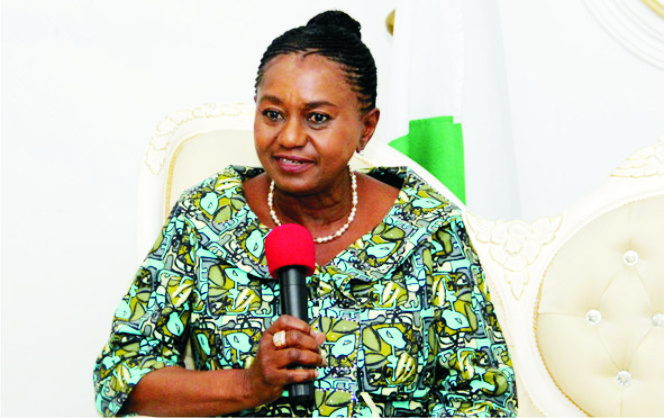Niger Delta
Banigo Tasks Women On Youth Upbringing

Rivers State Deputy Governor, Dr. Ipalibo Harry Banigo, has urged women in the State not to shirk their responsibility of bringing up our youths in the fear of God.
Banigo stated this while playing host to the Women in Business Global Resources at the Government House in Port Harcourt, last Monday.
According to Banigo, women have a lot of responsibilities which includes the mentoring of our youths, because whatever affects women affects the youths.
She, however, regretted that women were so busy that they do not have time to nurture and grow the youths in the word of God, stressing that there is a possibility of losing a whole generation with nobody to hand over to if the youths are not carried along because when a legacy is not preserved and carried on, it dies.
The deputy governor who said the key of multiplication is very important, disclosed that women must exhibit hard work, diligence, the fear of God, integrity, enterprise, faithfulness, and must ensure that they do not despise the days of small beginnings, and urged them to do whatever their hands find to do very well as unto the Lord.
Dr. Banigo who emphasised the importance of the Girl Child Education said “they should not get pregnant, they must stay in school to finish their education, they must fulfil their destinies and when they come out they must find what to do no matter how small it is the woman is created to do multiple tasks”
In her remarks, the founder of Women in Business Global Resources, Dr. Uche Juliet Ajirison informed the deputy governor that her organization’s vision was to raise women of integrity and standard who are passionately committed to championing national development from the business platform.
According to her, the deputy governor who has an innate passion for helping people, has been nominated to be the matron of the group and expressed the hope that her wealth of experience, knowledge and leadership style would be brought to bear in the vision to help raise business awareness amongst women.
Niger Delta
Oborevwori Launches Medical Outreach For Children With Special Needs

Niger Delta
UniCal Commits To Nursing Education Dev In C’River

Niger Delta
Agency Demolishes Illegal Roadside Structures In Delta N8 by … Clears Street Traders

-

 Sports4 days ago
Sports4 days ago2026 WC: Nigeria, DR Congo Awaits FIFA Verdict Today
-
Politics3 days ago
ADC, PDP, LP Missing As INEC Set For By- Elections In Rivers
-

 Environment3 days ago
Environment3 days agoOxfam, partners celebrate 5 years of climate governance programmes in Nigeria
-
Politics3 days ago
FG’s Economic Policies Not Working – APC Chieftain
-

 Politics3 days ago
Politics3 days ago2027: Diri Unveils RHA LG Coordinators, APC Congress Panel
-

 Politics3 days ago
Politics3 days agoReps To Meet,’Morrow Over INEC’s 2027 Election Timetable
-

 Politics3 days ago
Politics3 days agoGroup Continues Push For Real Time Election Results Transmission
-
Sports3 days ago
Sunderland Overcome Oxford Challenge

